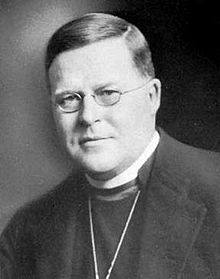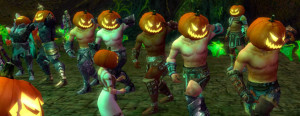Father Wells has been kind enough to provide us with the text of the annual report he presented at our church meeting yesterday:
ANNUAL REPORT
January 5, 2014
927th Week as Priest
753rd Week at St Dunstan’s
18th Week at Epiphany-Tallassee
NOTHING CAN STOP THE GOSPEL
(Part Two)
Grace to you, and peace, from God our Father, and the Lord Jesus Christ. Amen.
In my sermon earlier today, I made the claim that nothing can stop the Gospel of Jesus Christ. Well, that’s my story and I’m sticking to it. Nothing can stop the Gospel.
The Episcopal Church of the Epiphany begins its 20th Year in Tallassee with a strong sense of accomplishment and a deep desire to make a difference in the lives of men and women and boys and girls in this place. We should not be afraid, and we should not turn away from discovery, learning, challenge, possibility, and growth.
The Year 2013 has been a time of Restoration and Renewal. We have lost members and we have gained new members. This, in my experience, is the way things often are outside the major cities of Alabama. But the way that we move ahead as the Episcopal Church in Tallassee is to be hopeful in our outlook, faithful in our worship, and diligent in our responsibilities.
This past year, there were 46 Sunday services of Holy Eucharist, and one Weekday Holy Eucharist (Christmas Eve).
On 6 Sundays, we had Morning Prayer.
Holy Communion was taken to shut-ins and the home-bound 18 times during the year.
There were three Holy Baptisms at Epiphany: Avery Lyn Jones, Kara Shea Davis, and Jim Davis. Kara Shea and Jim were also confirmed by Bishop Santosh.
Greg and Lynne Dubay were married here in April.
Here are my recommendations to the Vestry and People of the Episcopal Church of the Epiphany in Tallassee:
1. Worrying about the past is a waste of your time and effort. We can’t do anything about the past except learn from it and move forward.
2. Worrying about the present is helpful only if it spurs us to good decisions and right actions. If you are worried about your church, then seek to do something to help.
3. Worrying about the future is despair, one of the deadly sins. Rather than worry, work for the future of the church, and have confidence that Almighty God will take care of us and show us the path to take.
4. Continue to do the good work of your Rice & Beans Outreach Ministry. Let the people of Tallassee and the surrounding area see how much you love each other, and how much you love your neighbors.
5. Do not worry about perfection—in worship, in music, in preaching, in ministry—not in any part of our work together as the Church. Strive for righteousness—which is not perfection, but faithfulness. Keep trying. Keep doing your best.
6. Remember that God will give us resolve and strength, Christ will give us grace and mercy, and the Holy Spirit will give us wisdom and understanding.
7. And finally, as your priest and pastor, I ask you not to leave the Episcopal Church. Your life is of infinite importance to God, and your participation, your forgiving spirit, your generous giving, your attendance, and your cooperation are essential to this congregation. AMEN.






